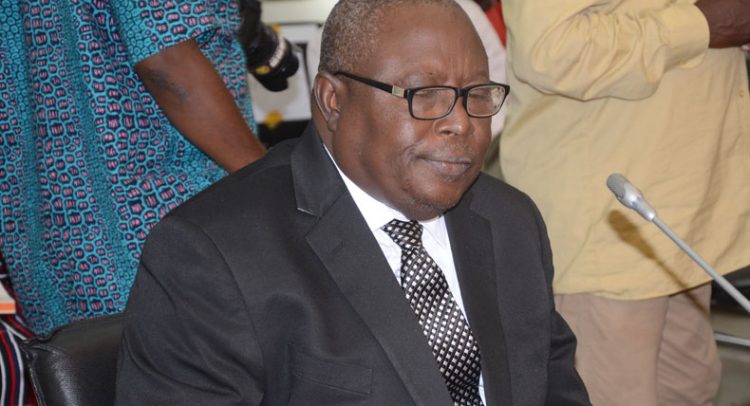Martin Alamisi Amidu
Special Prosecutor Martin Alamisi Amidu has replied to a suit filed by a former Deputy Attorney-General and Member of Parliament (MP) for Bolgatanga East, Dr Dominic Ayine, challenging the appointment into the public service, citing the age barrier.
According to Mr Amidu, the suit challenging his appointment on grounds that he has passed the statutory age for employment into the public service is without merit and ought to be dismissed by the Supreme Court.
He claimed Dominic Ayine was sponsored by officials of the opposition National Democratic Congress (NDC) to sue him with a view to preventing him from unearthing corrupt cases under the previous administration, stressing that the NDC officials are seeking to derail efforts being made to fight corruption in the country.
“To the best of my knowledge, information and belief, the Plaintiff [Dominic Ayine] brought this action in his name fronting for the immediate past government to set at naught the popular wishes of the majority of the Ghanaian electorate who see the president’s acceptance of the nomination of the 2nd Defendant [Martin Amidu] as Special Prosecutor, as being in the national interest to attack the canker of corruption in the body politic,” Mr Amidu said in his affidavit.
The Special Prosecutor noted, “Dominic Ayine was also the immediate past Deputy Minister for Justice for less than four years in the immediate past government that was overwhelmingly defeated in the last elections on 7th December 2016….the legal firm of Lithur Brew and Company now representing the Plaintiff [Dominic Ayine] are also the lawyers for former President, John Dramani Mahama: the immediate past Attorney General, Marietta Opong Brew-Appiah, was and is a member of the law firm as well as Tony Lithur who was also appointed by the former president as chairman of the lucrative Ghana Airport Company Limited during his tenure of office, and also holds himself out as the personal lawyer of the former president.”
Mr. Amidu, a former Attorney General and Minister for Justice – who is credited for his crusade against corruption – appeared before the Appointments Committee of Parliament on February 13, 2018 where he was grilled for about six hours.
He was overwhelmingly approved by parliament on February 20, 2018 to become Ghana’s first Special Prosecutor under the NPP administration.
Prior to his appearance before parliament, Dr Ayine had filed a writ at the Supreme Court challenging his age.
Dr. Ayine, who was the Deputy Attorney General under the previous Mahama administration, wants reliefs, including “a declaration that by a true and proper interpretation of Articles 190 (1) (d), 199 (1) (4) and 295 of the 1992 Constitution, the requirement age of all holders of public offices created pursuant to Article 190 (1) (d) is 60 years, anyhow not beyond 65 years.”
But Mr Amidu is praying the apex court to dismiss the suit “as being without any merit whatsoever under the 1992 Constitution.”
According to him, Dr Ayine failed to “appreciate the fact that parliament has residual power under the 1992 Constitution to enact sui generis provisions in an Act of Parliament such as Section 13 of Act 959, to deal with matters such as the intractable canker of corruption and corruption-related offences – expressly proscribed by the Constitution and laws of Ghana – by engaging such legal talents on such terms and conditions as would effectively achieve the objective of the Constitutional proscriptions.”
AG Responds
Mr Amidu’s reply comes a few weeks after the Attorney General – who is tied to the suit – had relied on it and also prayed the Supreme Court to dismiss it for being “borne out of narrow, inadequate and literal construction of the scope of the application of Article 199 of the Constitution”
The Deputy Attorney General, Godfred Yeboah Dame, in his application in reaction, averred that Mr Amidu is not “a proper party to the suit” as the action seeks to challenge the Attorney General’s decision to nominate him (Amidu) as the Special Prosecutor and as well as his presentation by the president of the nomination to parliament to approve.
Mr. Dame prayed the court to take account of the relevant constitutional provisions regarding the meanings of public office and public service, as there are different categories of ‘public offices’ and ‘public officers.’
He said the plaintiff came to this erroneous conclusion largely because he failed to appreciate the distinction between ‘public office’ and ‘public service,’ treating the two terms as synonymous.
BY Gibril Abdul Razak


